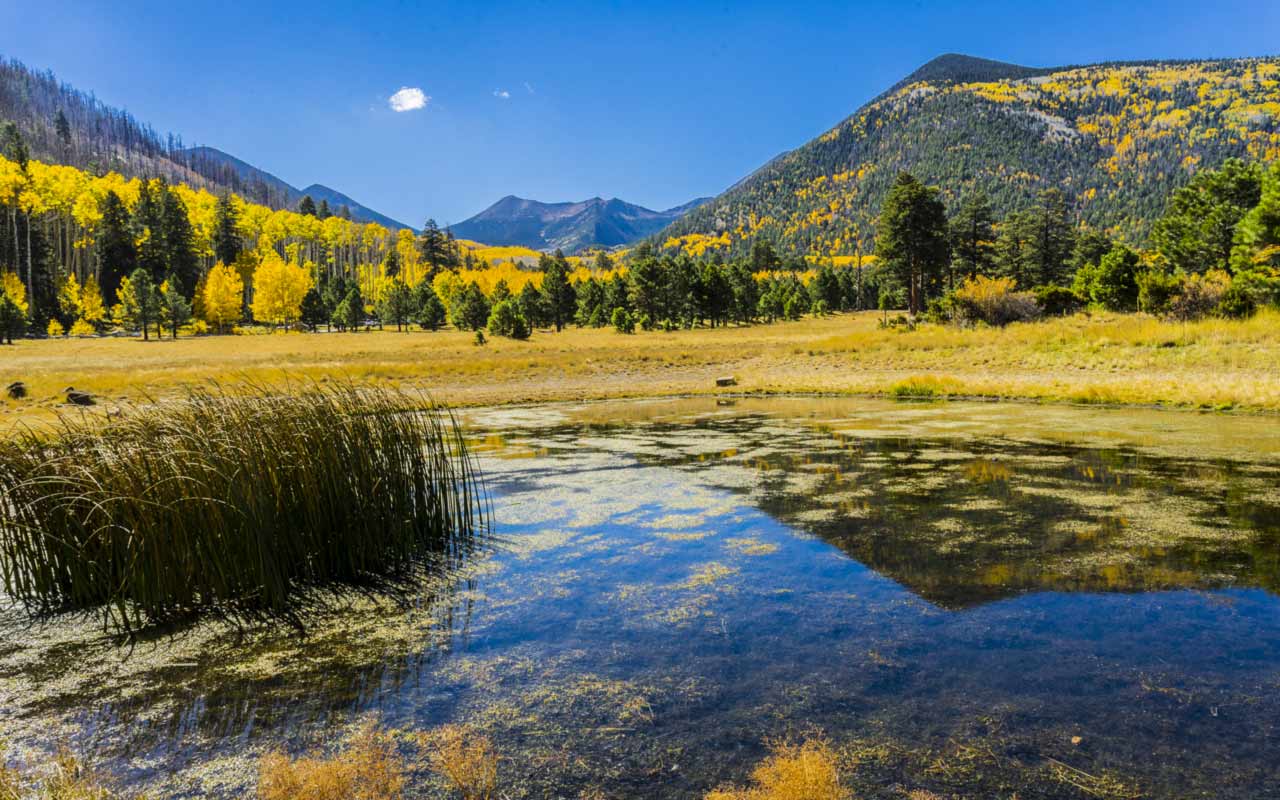Flagstaff, Ariz.: A Smart Place to Retire
Retirees can enjoy biking, skiing and a “brewery trail” in this high-altitude corner of the Grand Canyon State.


Profit and prosper with the best of Kiplinger's advice on investing, taxes, retirement, personal finance and much more. Delivered daily. Enter your email in the box and click Sign Me Up.
You are now subscribed
Your newsletter sign-up was successful
Want to add more newsletters?

Delivered daily
Kiplinger Today
Profit and prosper with the best of Kiplinger's advice on investing, taxes, retirement, personal finance and much more delivered daily. Smart money moves start here.

Sent five days a week
Kiplinger A Step Ahead
Get practical help to make better financial decisions in your everyday life, from spending to savings on top deals.

Delivered daily
Kiplinger Closing Bell
Get today's biggest financial and investing headlines delivered to your inbox every day the U.S. stock market is open.

Sent twice a week
Kiplinger Adviser Intel
Financial pros across the country share best practices and fresh tactics to preserve and grow your wealth.

Delivered weekly
Kiplinger Tax Tips
Trim your federal and state tax bills with practical tax-planning and tax-cutting strategies.

Sent twice a week
Kiplinger Retirement Tips
Your twice-a-week guide to planning and enjoying a financially secure and richly rewarding retirement

Sent bimonthly.
Kiplinger Adviser Angle
Insights for advisers, wealth managers and other financial professionals.

Sent twice a week
Kiplinger Investing Weekly
Your twice-a-week roundup of promising stocks, funds, companies and industries you should consider, ones you should avoid, and why.

Sent weekly for six weeks
Kiplinger Invest for Retirement
Your step-by-step six-part series on how to invest for retirement, from devising a successful strategy to exactly which investments to choose.
Population: 73,964
Cost of living: 116
Median home price: $362,000
From just $107.88 $24.99 for Kiplinger Personal Finance
Become a smarter, better informed investor. Subscribe from just $107.88 $24.99, plus get up to 4 Special Issues

Sign up for Kiplinger’s Free Newsletters
Profit and prosper with the best of expert advice on investing, taxes, retirement, personal finance and more - straight to your e-mail.
Profit and prosper with the best of expert advice - straight to your e-mail.
College perk: Northern Arizona University works with retiree volunteers to partner with the city’s dozens of nonprofits.
At an elevation of 7,000 feet, this mountain town swaddled by sweet-smelling Ponderosa pine trees has plenty to offer retirees by way of outdoor activities, top-tier dining, volunteer opportunities and seasonable weather. Snowbirds, take heed: This is not the sun-bleached Arizona you may be thinking of. Despite its crisp lack of humidity, it regularly receives about 100 inches of snow every winter.
Residents can enjoy four beautiful seasons in Flagstaff, says Meg Roederer, of the Flagstaff Convention and Visitors Bureau. She graduated from Northern Arizona University (located at the heart of Flagstaff) 30 years ago and never looked back. “Between the student, professional and retirement populations, the city has a real vibrancy,” she says. Don’t be fooled by downtown Flagstaff’s sleepy western vibe. “It’s really a mountain-foodie town,” Roederer says. It has more than 200 restaurants and award-winning craft beers in abundance along a “brewery trail.”
Single-family homes in Flagstaff aren’t cheap: Expect to pay $500,000 or more for a three-bedroom, two-bath home. Condos and townhomes are available for about $200,000 to $300,000. Rents for luxury apartments run about $1,200 to $1,400 a month.
The Flagstaff Medical Center, a regional hospital, has a five-star rating from Medicare.
Designated a “Bicycle Friendly Community” by the League of American Bicyclists since 2006, the city offers more than 130 miles of bike lanes and another 56 miles of multi-use “urban trails.” If skiing is your thing, Arizona’s tallest mountains, the San Francisco Peaks, are a 30-minute drive from the city. (If skiing isn’t your thing, there’s a chairlift that offers breathtaking views.) The Grand Canyon is roughly 90 minutes north by car.
Northern Arizona University offers events year-round that are open to the public, including free summer seminars, symphony concerts with reduced admission for seniors, and community-welcome events staffed by NAU students for both new and longtime Flagstaff residents. But maybe the most compelling draw to the city can be found in a squat, beige building on Northern Arizona’s campus. Through NAU’s Civic Service Institute, retirees can find volunteering opportunities at any of the dozens of nonprofits that call Flagstaff home—everything from supporting Habitat for Humanity to tutoring elementary students. “A lot of new retirees find that getting involved in this kind of work is a great way to build community and find like-minded people,” says Erin Kruse, the senior program’s project director.
Arizona exempts Social Security benefits from state taxes, along with up to $2,500 in income from military or Arizona state and local pensions. Income from IRAs and other retirement plans is taxable at a top rate of 4.54%.
For population figures, we used the most recent U.S. Census Bureau data. Cost-of-living data comes from the Council for Community and Economic Research (100 represents the national median). Median home prices were provided by Redfin, Zillow and local associations of Realtors.
Profit and prosper with the best of Kiplinger's advice on investing, taxes, retirement, personal finance and much more. Delivered daily. Enter your email in the box and click Sign Me Up.

-
 Ask the Tax Editor: Federal Income Tax Deductions
Ask the Tax Editor: Federal Income Tax DeductionsAsk the Editor In this week's Ask the Editor Q&A, Joy Taylor answers questions on federal income tax deductions
-
 States With No-Fault Car Insurance Laws (and How No-Fault Car Insurance Works)
States With No-Fault Car Insurance Laws (and How No-Fault Car Insurance Works)A breakdown of the confusing rules around no-fault car insurance in every state where it exists.
-
 7 Frugal Habits to Keep Even When You're Rich
7 Frugal Habits to Keep Even When You're RichSome frugal habits are worth it, no matter what tax bracket you're in.
-
 457 Plan Contribution Limits for 2026
457 Plan Contribution Limits for 2026Retirement plans There are higher 457 plan contribution limits in 2026. That's good news for state and local government employees.
-
 Medicare Basics: 12 Things You Need to Know
Medicare Basics: 12 Things You Need to KnowMedicare There's Medicare Part A, Part B, Part D, Medigap plans, Medicare Advantage plans and so on. We sort out the confusion about signing up for Medicare — and much more.
-
 The Seven Worst Assets to Leave Your Kids or Grandkids
The Seven Worst Assets to Leave Your Kids or Grandkidsinheritance Leaving these assets to your loved ones may be more trouble than it’s worth. Here's how to avoid adding to their grief after you're gone.
-
 SEP IRA Contribution Limits for 2026
SEP IRA Contribution Limits for 2026SEP IRA A good option for small business owners, SEP IRAs allow individual annual contributions of as much as $70,000 in 2025, and up to $72,000 in 2026.
-
 Roth IRA Contribution Limits for 2026
Roth IRA Contribution Limits for 2026Roth IRAs Roth IRAs allow you to save for retirement with after-tax dollars while you're working, and then withdraw those contributions and earnings tax-free when you retire. Here's a look at 2026 limits and income-based phaseouts.
-
 SIMPLE IRA Contribution Limits for 2026
SIMPLE IRA Contribution Limits for 2026simple IRA For 2026, the SIMPLE IRA contribution limit rises to $17,000, with a $4,000 catch-up for those 50 and over, totaling $21,000.
-
 457 Contribution Limits for 2024
457 Contribution Limits for 2024retirement plans State and local government workers can contribute more to their 457 plans in 2024 than in 2023.
-
 Roth 401(k) Contribution Limits for 2026
Roth 401(k) Contribution Limits for 2026retirement plans The Roth 401(k) contribution limit for 2026 has increased, and workers who are 50 and older can save even more.